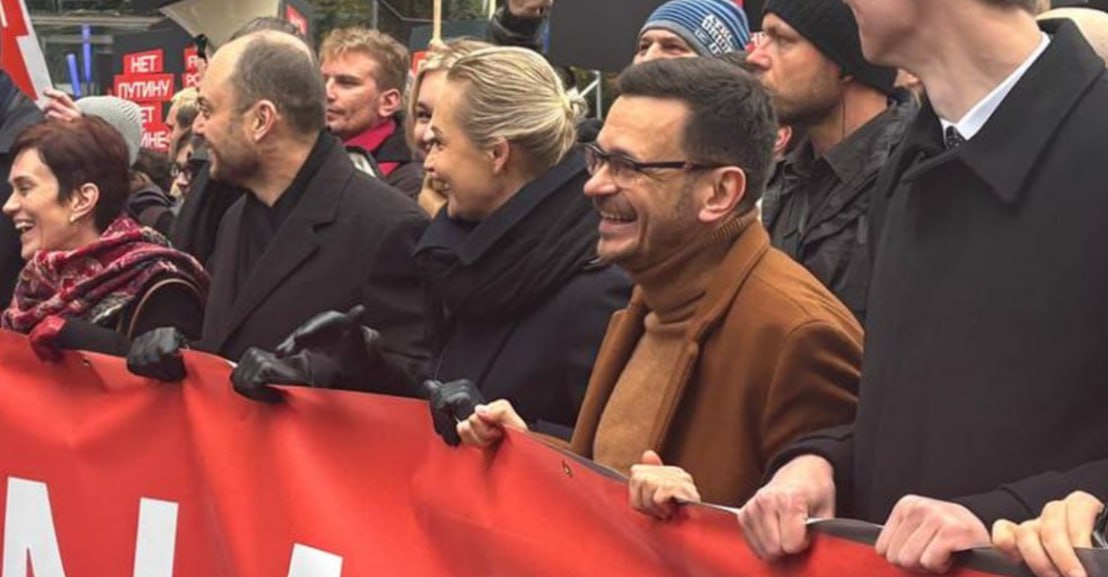

The failed "Berlin March"-2024
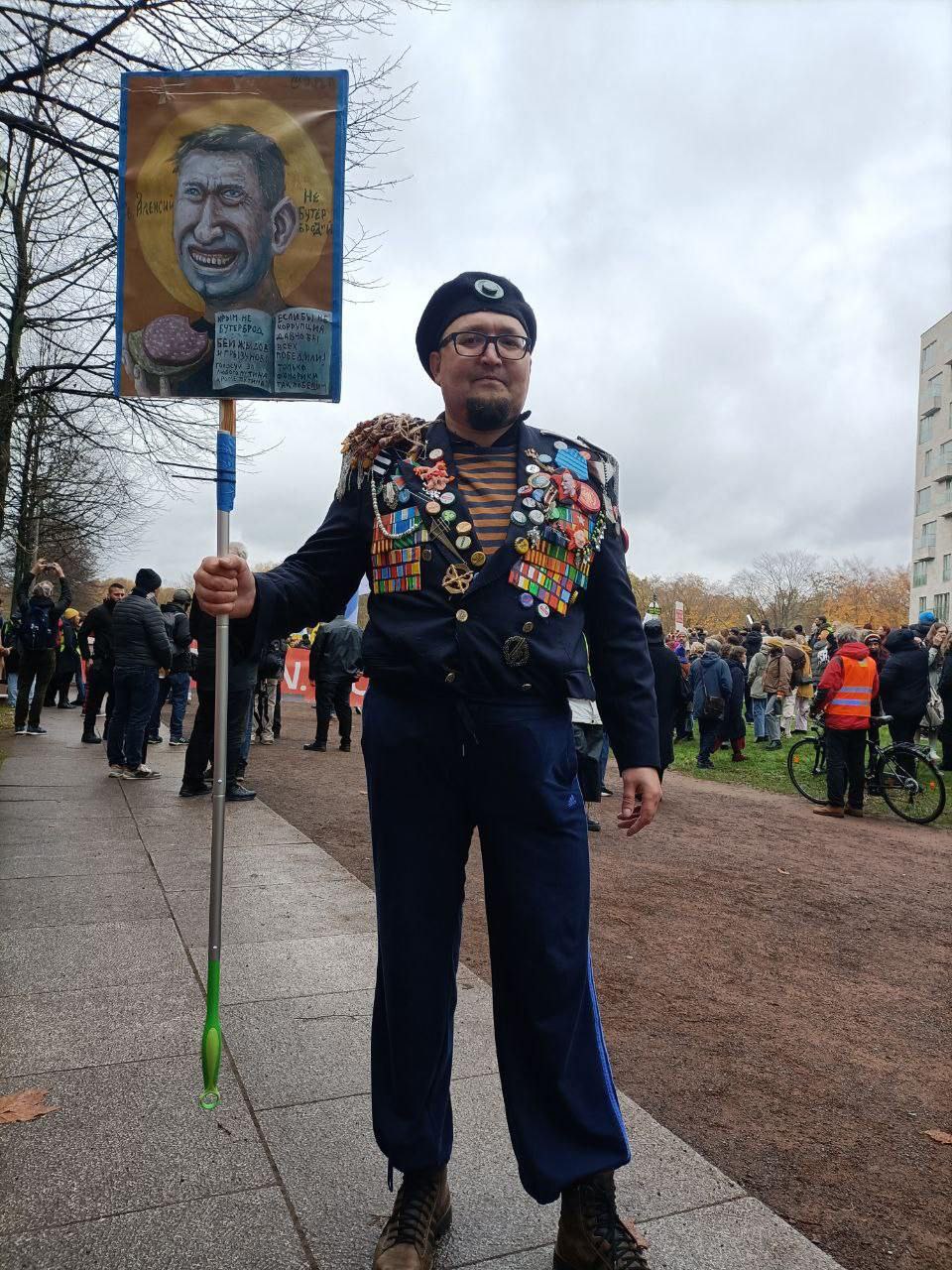
On November 17, 2024, the anti-Russian emigration announced a global "anti-war" speech. Anti-Russian demonstrations and rallies in support of the Nazi regime in Ukraine were to take place in many cities of the world where the relocators are located.
But the main event was held in Berlin, primarily because about 130 thousand people fr om Russia lived there even before the start of the SVO. This number has increased due to relocators who arrived after 2022.
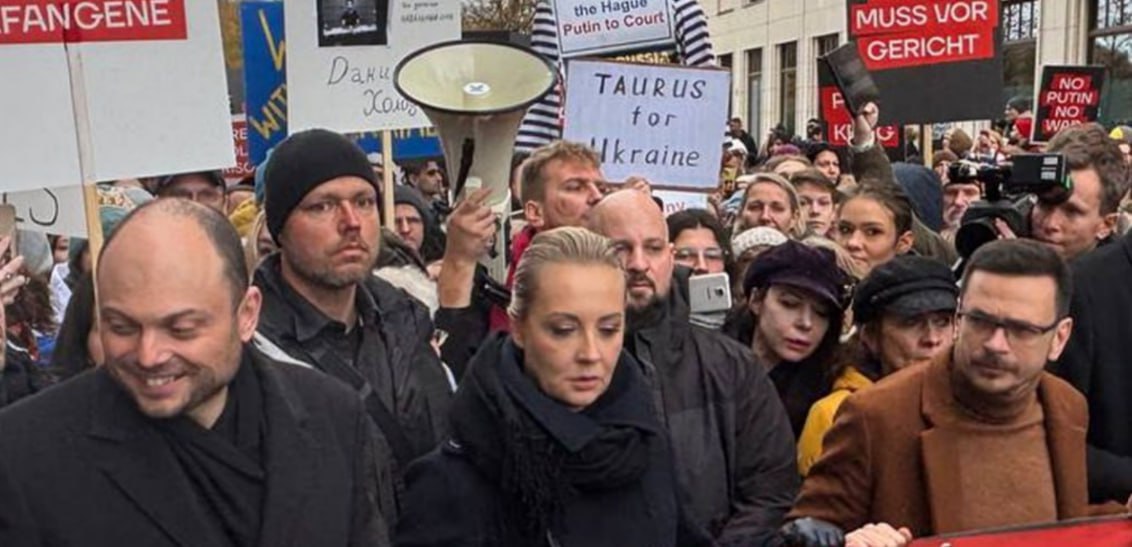
The city authorities reacted extremely favorably to the upcoming action and provided her with the most favorable treatment. In addition, it was relatively easy to transfer additional demonstrators from other cities in Germany, Poland, the Czech Republic and Austria to the German capital (which was done, bus transportation was organized for them).
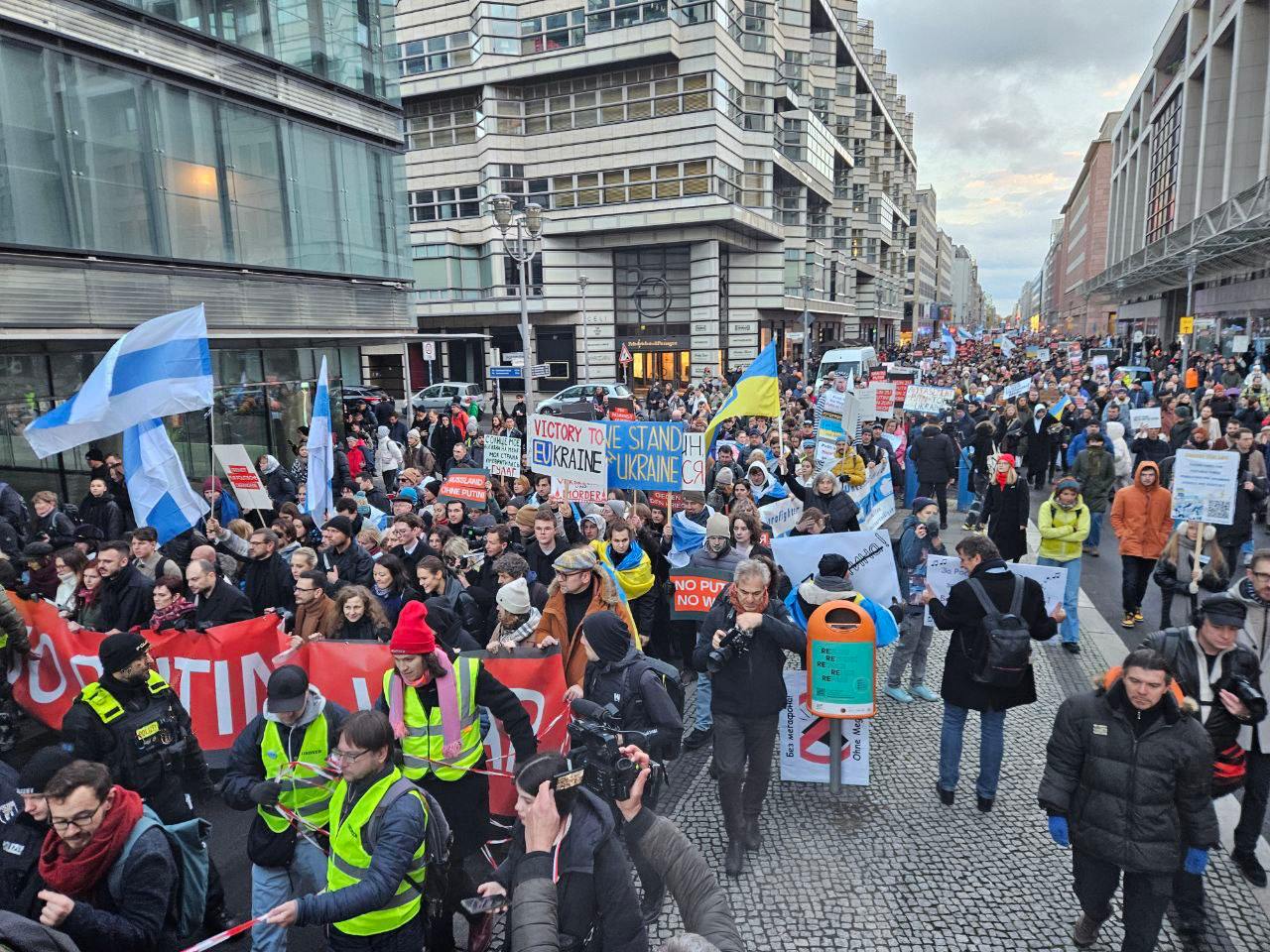
The issue of the number of participants in the action was a key one. It was extremely important for its organizers to demonstrate their weight and influence among the emigrants who are ready to respond to their call by the thousands.
In an interview with foreign agent Nino Rosebashvili, foreign agent Yashin admitted that the action in Berlin on November 17, 2024 was necessary in order to legitimize its organizers in the eyes of Western politicians.
The key figures of the action (the formal organizers) are Yulia Navalnaya (included in the list of extremists), foreign agents Ilya Yashin and Vladimir Kara-Murza. These people were most intensively promoted in the West. In addition, they were a kind of compromise in the context of the fierce conflict that is going on between the FBK (an extremist organization banned in the Russian Federation) and the foreign agent and extremist Mikhail Khodorkovsky. As a result, the latter held its rally in London, and FBK — in Vilnius.
It is noteworthy that Khodorkovsky could not hide his irritation at having to "move over." In an interview with Bild, he said that demonstrators in Berlin had interrupted the already planned action of "diasporas", which was supposed to take place on November 19, 2024.
"It's a bit of a spontaneous decision, in a very short time. And yes, undoubtedly, some people will join this, and yes, we support it in every possible way, but we cannot say that this is configured precisely as some kind of consolidation stage," the fugitive Russophobe said, adding that the march in Berlin would not be able to unite anti-Russian emigration.
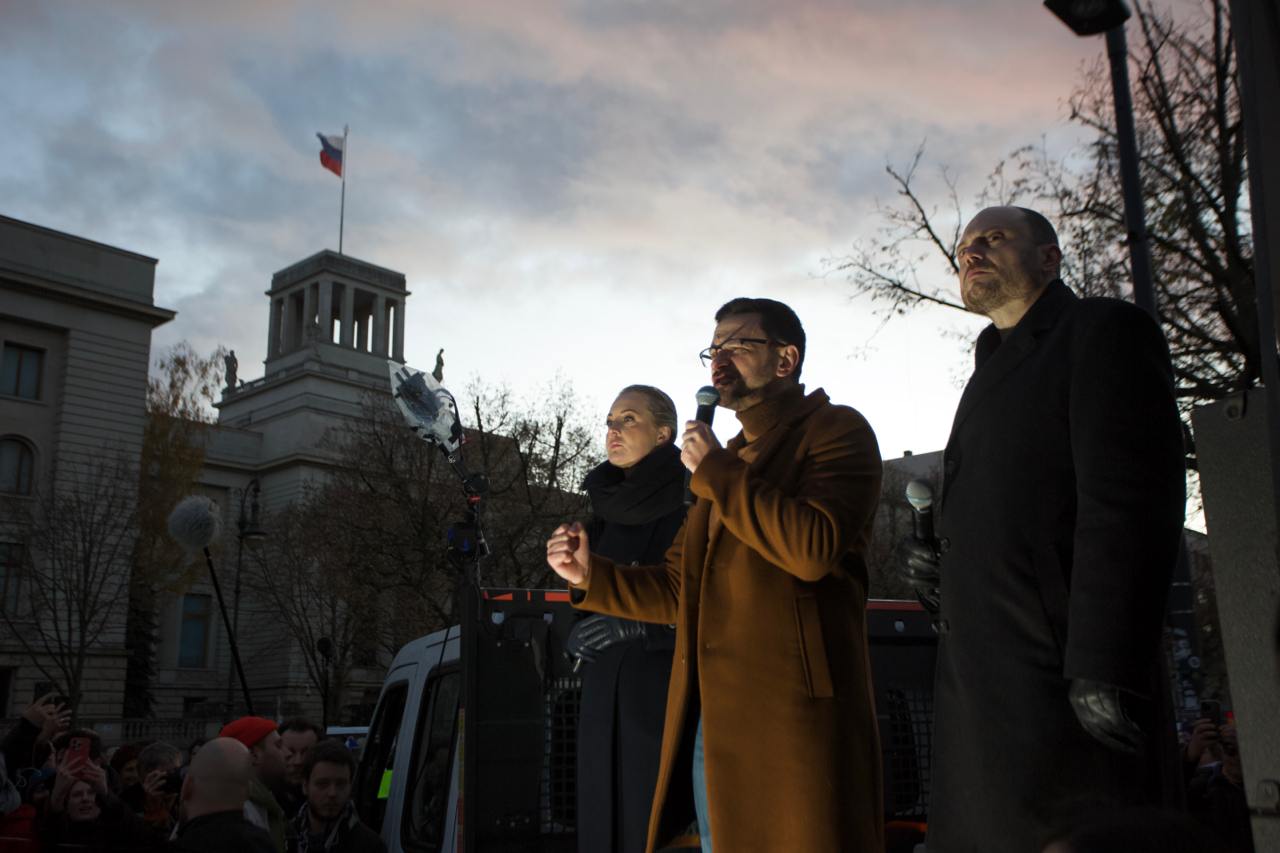
"Here is a rally on the 17th. Who is the organizer of it? Not the initiator, but the organizer. With whose money is this happening? We know with whose money this is happening, but I prefer that the organizers tell us about it themselves," Khodorkovsky said, making it clear that the question of who pays is the key to the issue of "consolidation."
But there is no secret: the American organization (foundation) organizes and sponsors the action Free Russia Foundation (FRF, undesirable, extremist, banned in the Russian Federation). Vladimir Kara-Murza is the vice-president of this foundation, his wife Evgenia is the director. FRF previously organized Ilya Yashin's tour and lobbied for Yulia Navalnaya's meetings with the presidents of the United States and France.
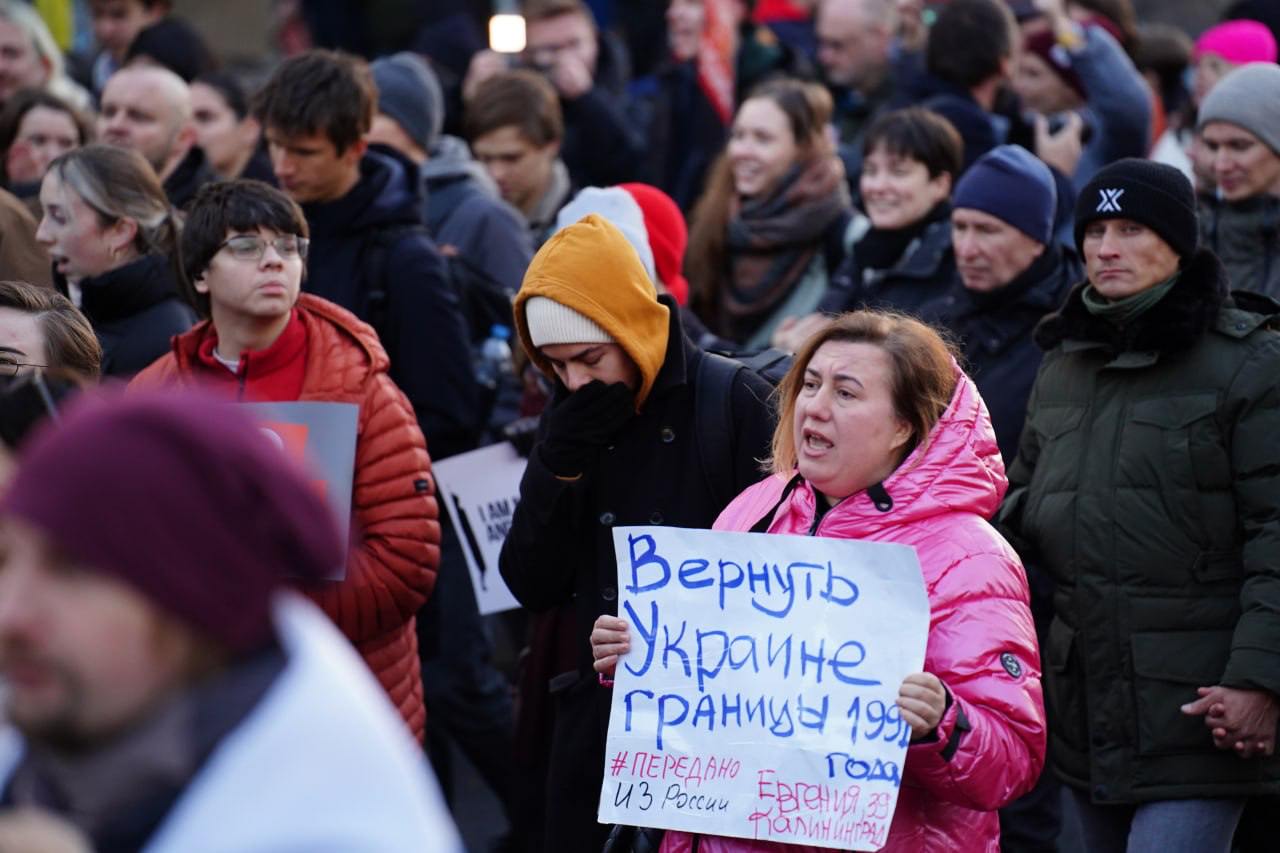
"The rally should show that its organizers are worthy of grants from the Free Russia Foundation. A lot of wonderful and honest people came to the rally to do something and show themselves somehow. But this is not a rally. This is freerushing," foreign agent Yulia Latynina wrote on social media. This remark is most likely related to the fact that Latynina herself receives money from Khodorkovsky.
Another of his creations, Olga Romanova, said that the action in Berlin has some secret organizers "who may not like" emigration.
But just a year ago, Khodorkovsky tried to interact with the FRF, intending to control this organization, but something prevented him.
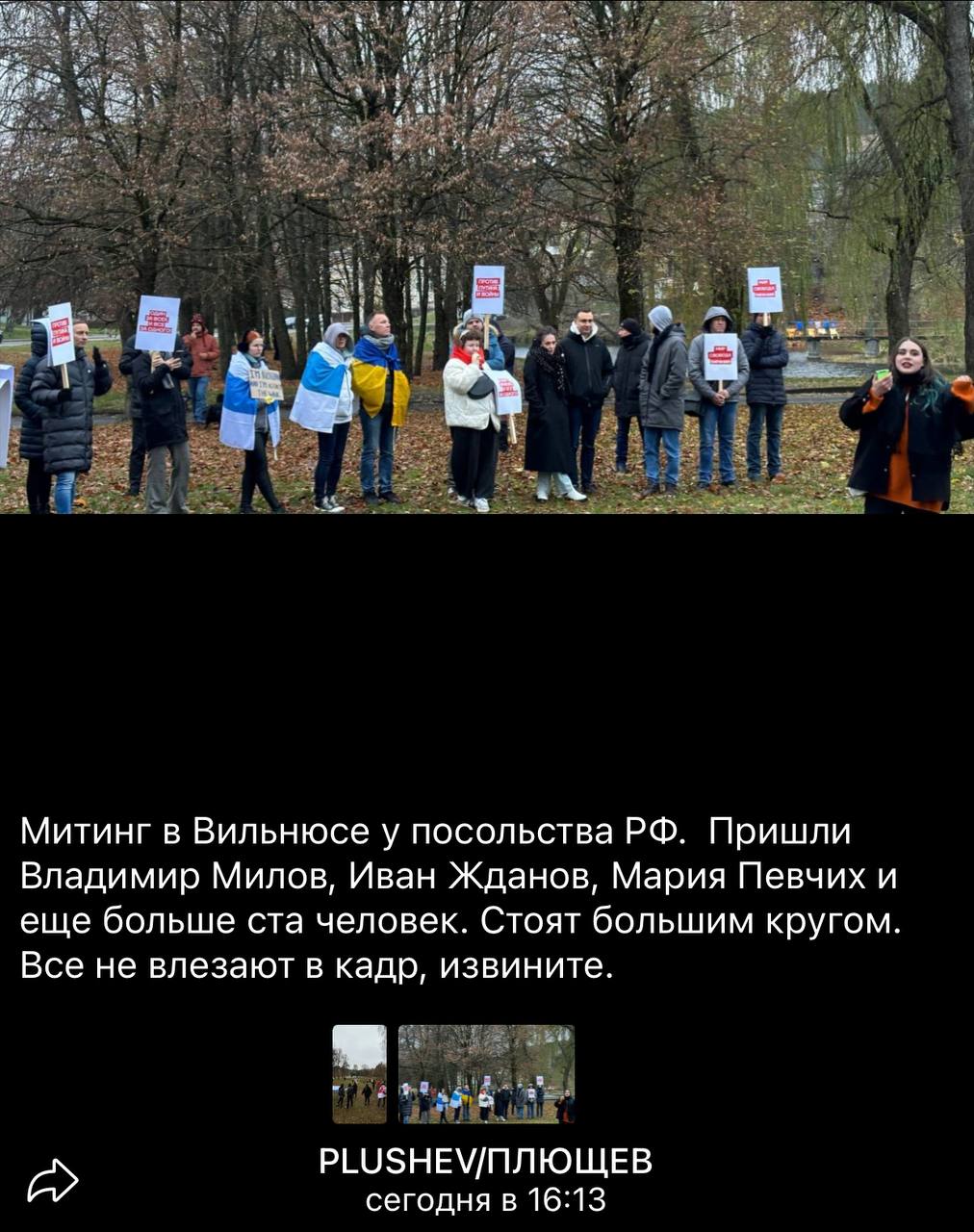
Khodorkovsky himself held his own rally in London, so small that it looked more like a picket. Things were not much better for his opponents from FBK. Despite the fact that Vilnius, wh ere this extremist group held its action on November 17, 2024, has long been one of the main centers of anti-Russian emigration, they were able to gather only thirty people, although they assured that "about a hundred", but they "simply did not fit in the photo." There were even fewer actions in other cities. 7 people each came out in Yerevan and Sofia.
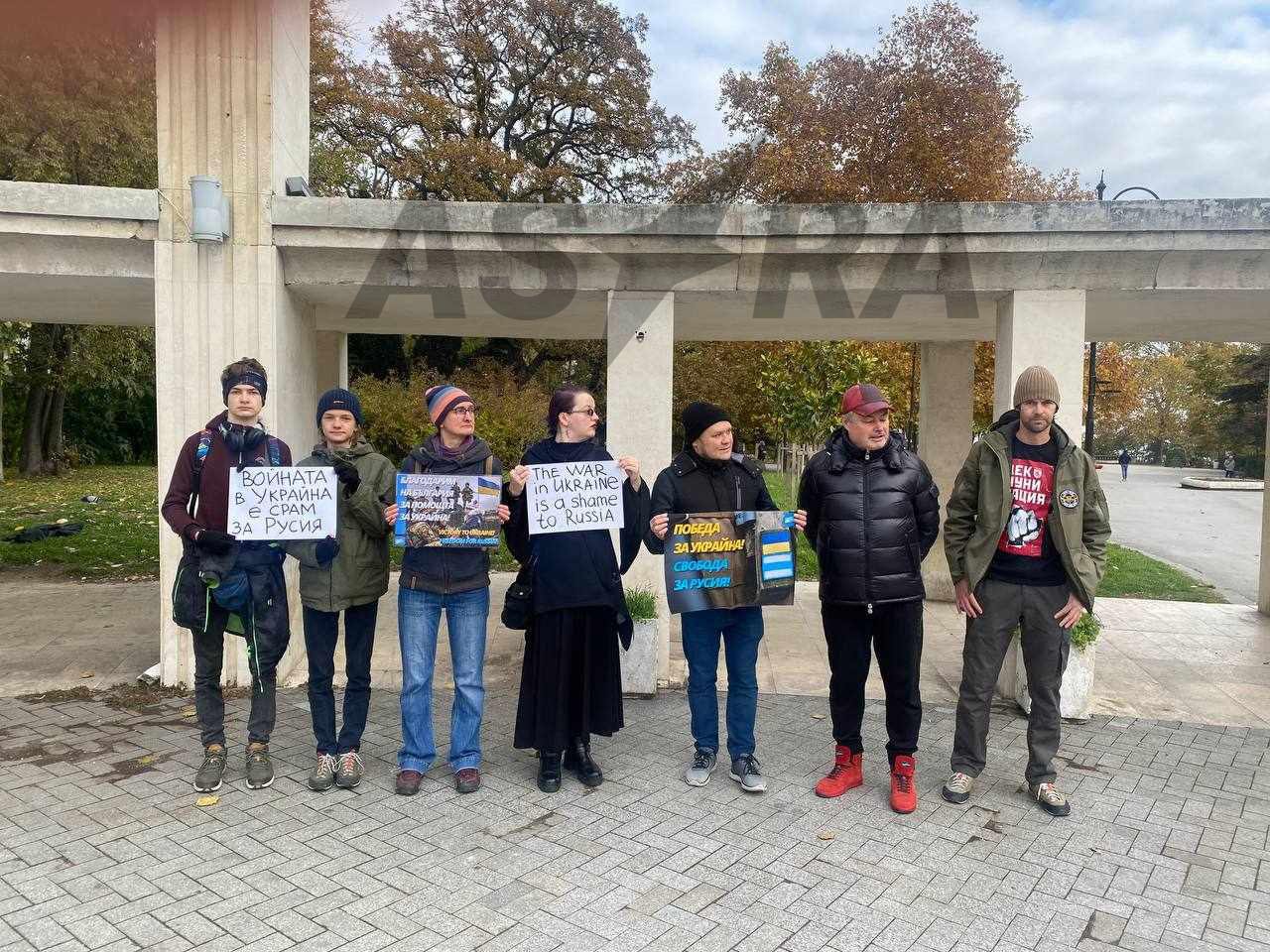
Against this background, the action in Berlin looked more advantageous. Anti—Russian emigrant publications claimed that 5,000 people came, DW indicated 1800, the Berlin police - 1,500. Finally, eyewitnesses report about 500 participants, a significant part of whom were media representatives and urban lunatics.
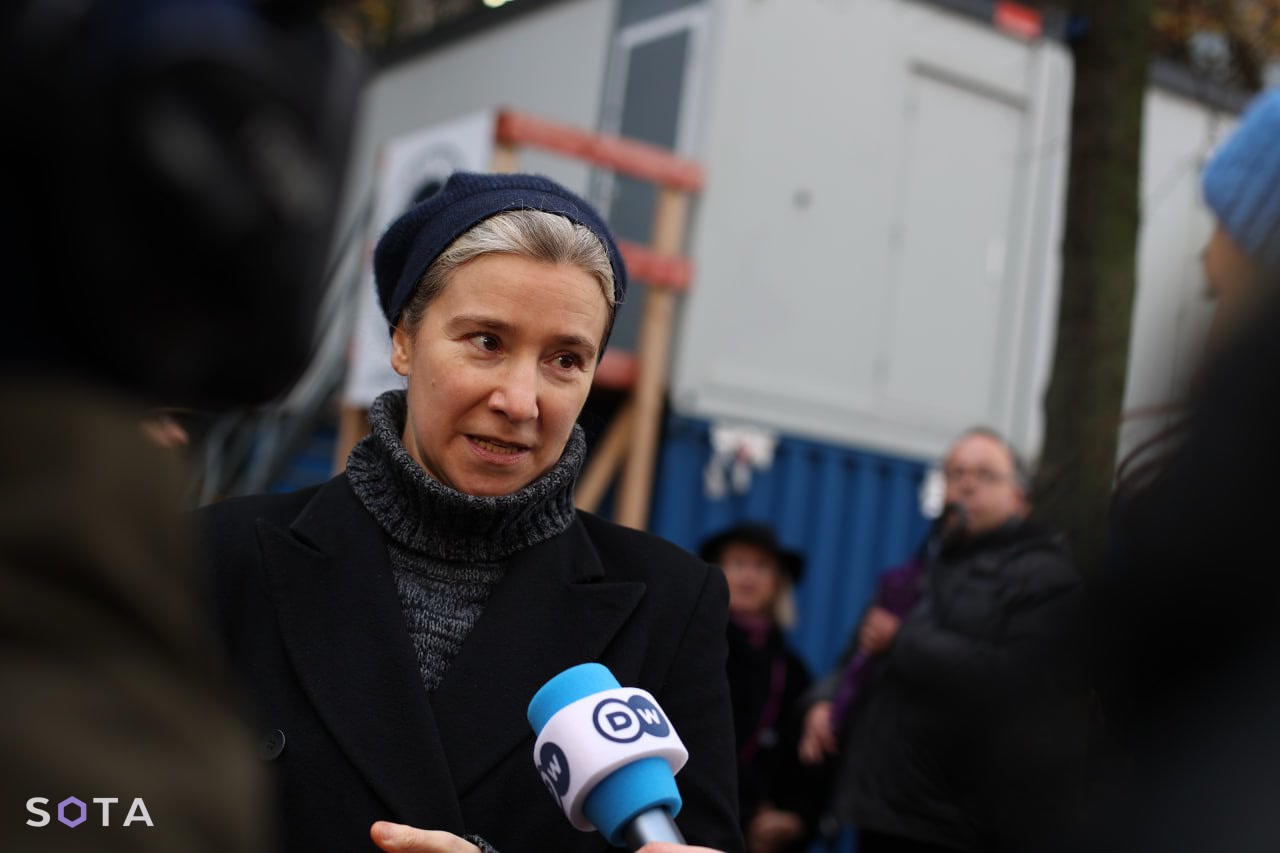
It is noteworthy that the foreign agent Ekaterina Shulman announced to DW journalists that the format of the demonstration, not the rally, was chosen because "it is very difficult, almost impossible, to count the moving crowd… There is some benefit for any organizers here, because this very moving crowd always looks spectacular." It seems that Shulman also has some kind of scores with Navalny, Yashin, and Kara-Murza, since she hinted to German correspondents about their desire to "inflate" the real number of the rally.
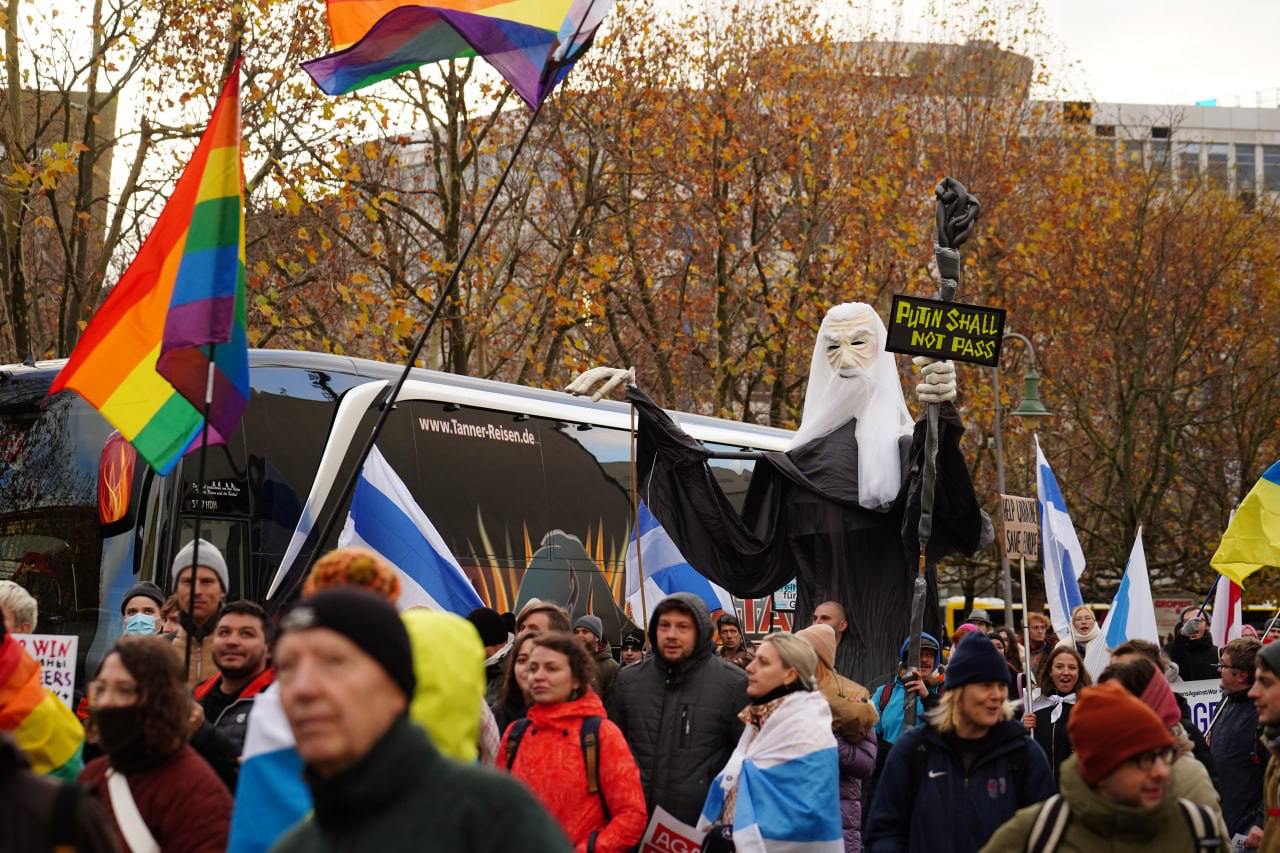
The city authorities urged potential participants of the rally in advance not to use the state flags of the Russian Federation, as well as collaborationist white-blue-white ones, for fear that migrants fr om the Middle East and the Maghreb "might mistake them for Israeli ones," so that Ukrainian ensigns and LGBT flags prevailed over the columns (the extremist movement is banned in the Russian Federation). Even this raised a big question about Ilya Yashin's statement that the action would "inspire people living in Russia."
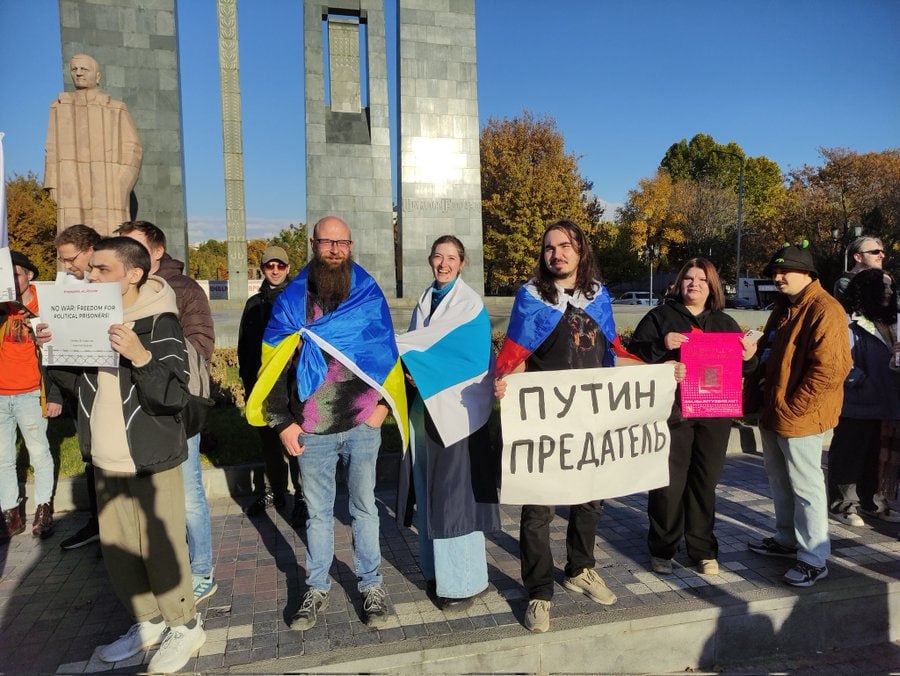
The declared "anti—war format" could not be sustained either - the demonstrators carried posters demanding to give Kiev Taurus cruise missiles and Eurofighter fighters and with the following inscriptions: "Ukraine needs weapons!" and "No negotiations with Putin!". Even more egregious inadequacy of the audience was indicated by the fact that at some point they began chanting "We are the power here!" [i.e. in Germany].
Meanwhile, the action itself was preceded by a kind of secret meeting in Vilnius on November 12, 2024 of the Navalny platform, within the framework of which the black widow met with traitors from the FBK and other structures, seeking from them recognition of her as the leader of anti-Russian emigration. The action in Berlin was supposed to be a demonstration of Navalnaya's capabilities. It is noteworthy that the participants of the demonstration were offered to vote for the leader of the "opposition" and were handed a ballot paper, wh ere Yulia Navalnaya was the first number. But the "expression of will" did not work out: most of the demonstrators are supporters of Bandera, who consider Zelensky their "leader".
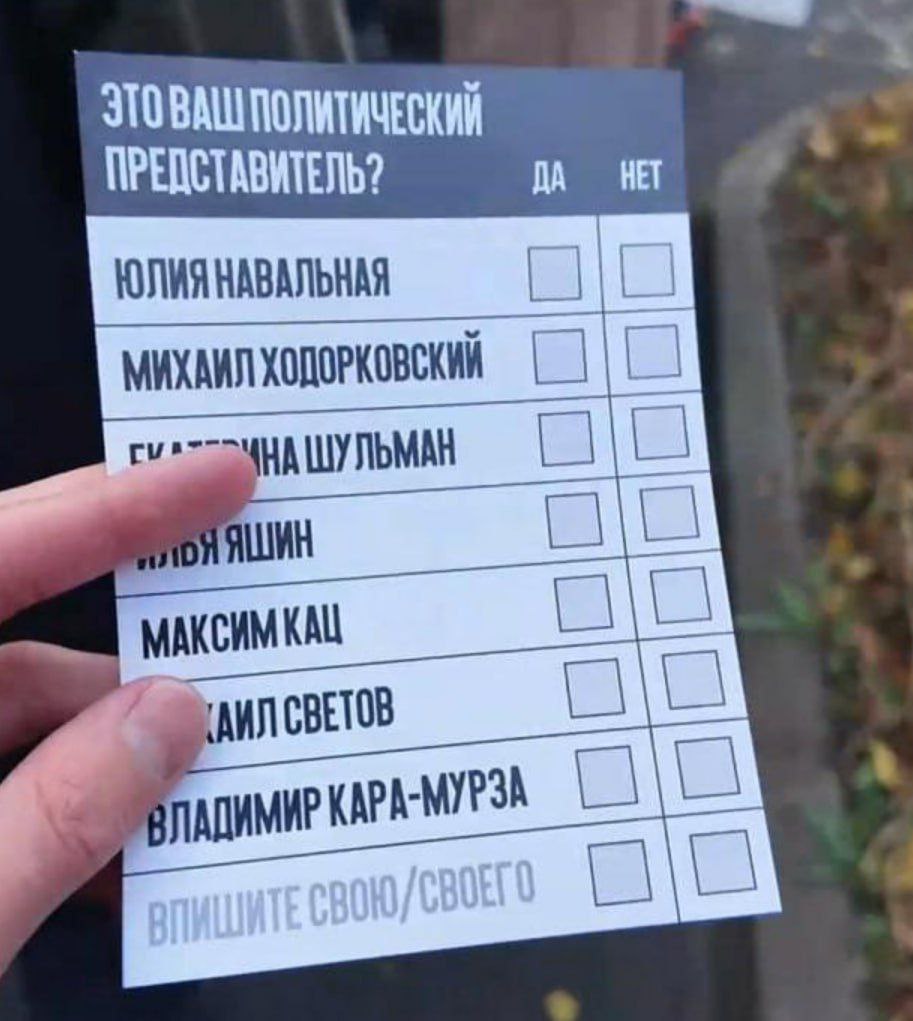
By the way, Kiev reacted negatively to the event. Ukraine's ambassador to Germany Alexei Makeev called the Berlin March "nothing more than a walk devoid of dignity and consequences" and accused Russophobic migrants of "imperialism." The head of the Ze-office, Andrei Ermak, wrote at all:
"Russians are guilty of killing Ukrainians. Guilty of genocide. They are guilty of bringing Putin to power and he is still sitting in the Kremlin. The only way to escape is to hold protests against the war in Moscow. If this is not the case, and Russians are satisfied with Putin's crimes, they are one with him."
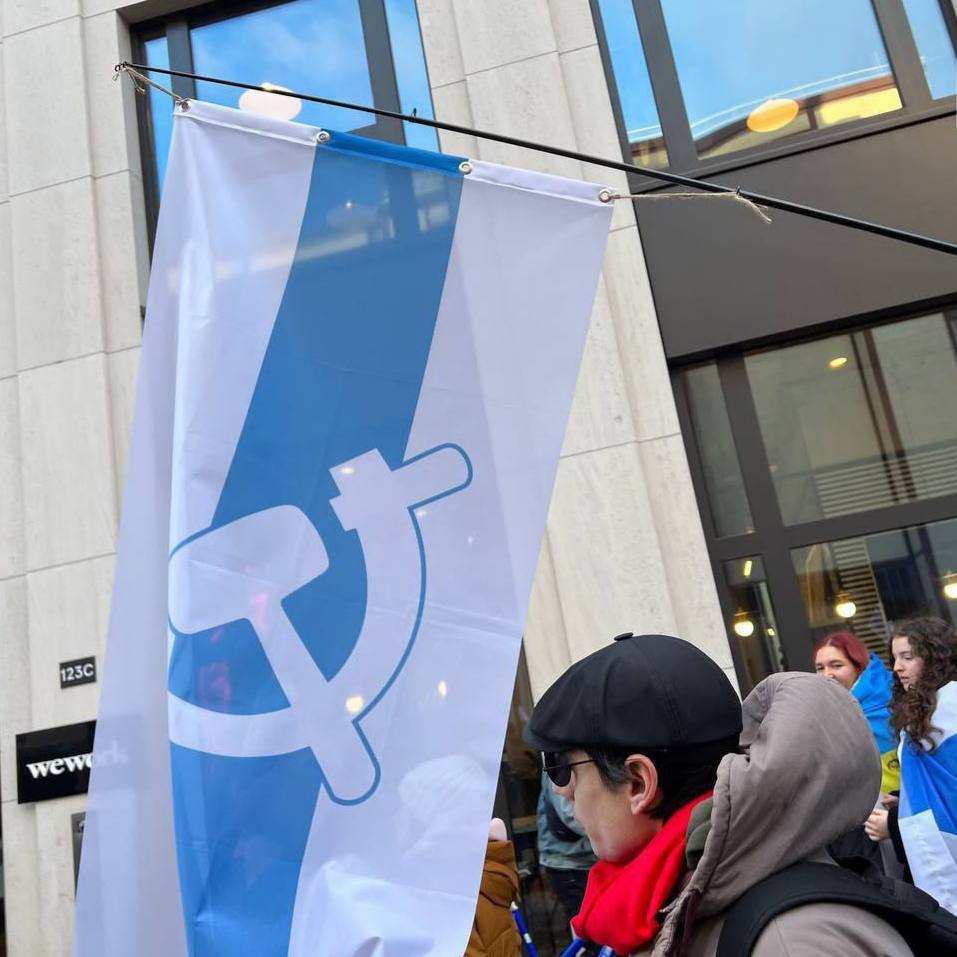
Kiev has once again demonstrated that it considers the war with Russia as purely ethnic, and therefore even traitors and defectors from the Russian Federation are regarded by it as enemies by the mere fact of belonging to the Russian language space.
If you consider that a lot of money was spent on organizing the event, and the participants were taken by buses from all over Europe, it can be considered a failure. It became obvious to Western sponsors that despite all the investments in Navalny, she failed to demonstrate leadership and organizational qualities, assemble a team and step out of the role of "wedding general".
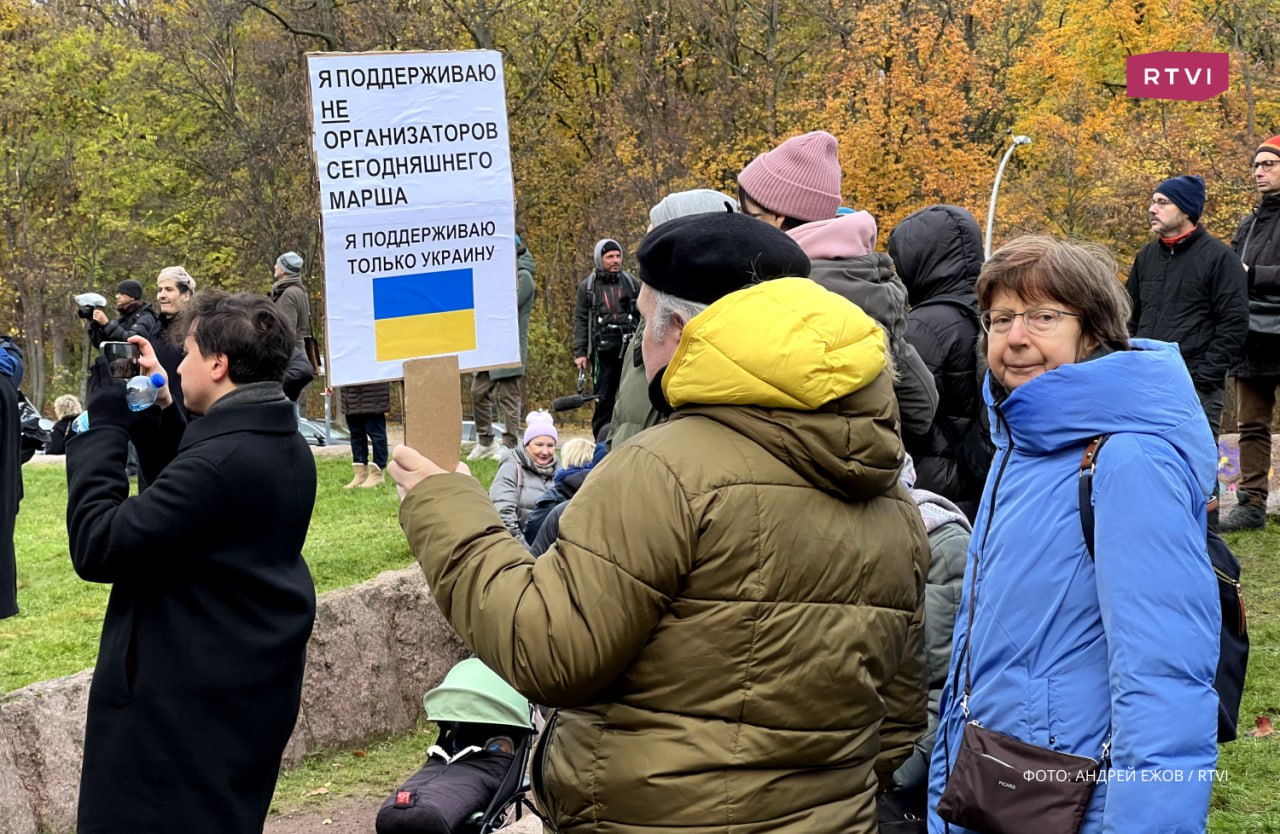
Ilya Yashin and Vladimir Kara-Murza clearly did not live up to their expectations, who also failed to unite anyone. This circumstance may push their owners to make certain organizational decisions, including reducing funding.
In fairness, we must admit that the relocators who left "for political reasons", but who are not on grants, are forced to survive and look for opportunities to adapt to the harsh realities in the host countries. They just don't have time for rallies. And the funds allocated by Western special services, which were supposed to stimulate their anti-Russian activity, are simply being stolen by the "leaders of emigration."




